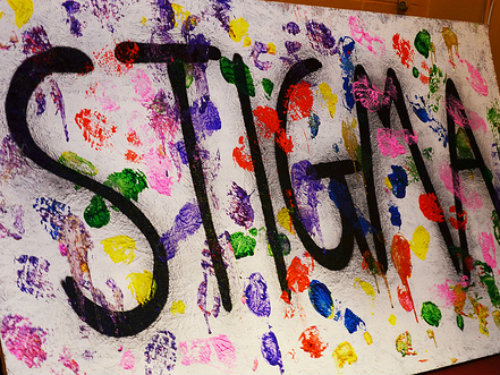
By Amanda
I haven’t yet read Nathan Filer’s award-winning novel ‘The Shock of the Fall’ but I’ve learned that it was inspired by Filer’s experience working as a psychiatric nurse on Clifton Ward, which used to be part of Bristol’s Southmead Hospital.
I was a patient on the ward some four years before Filer worked there and as such read his recent article in the Guardian about the mental health system with a personal as well as professional interest. I recognised some of the descriptions of the ward in the piece – not so much the acting out of patients, but rather the fact that the ward had provided a place of asylum to those whose lives had become unbearable as a result of mental illness. A place where staff had time and an inclination to speak with and spend time with patients as they started on the slow journey of recovery.
I’d experienced ‘care in the community’ and in many ways it was the flaws and failures of this care that led to my lengthy admission. I came to Bristol aged 20 having suffered from a breakdown at university. Homeless, and mentally unwell, I was housed as a priority in supported housing. Although the house allegedly provided high levels of support, the support was primarily between 9am and 5pm Monday until Friday, and anyone who has been mentally ill can tell you that mental distress simply does not respect a working week.
Looking back it was an inappropriate placement. My needs were too high for the house and my illness too complex for the staff to support or understand. While the house had a valuable place in supporting those at some stage in their recovery it was not the place for me at that time. I needed specialised care, and not only that, but a place of refuge, both from my feelings and from the stressors of day-to-day life.
The problem was it was my only option. The lack of support, my own sense of failure and inability to deal with my emotions led to a spiraling of destructive coping mechanisms, three suicide attempts and increasingly a toll on my physical health. After the third suicide attempt I was hospitalised on a general ward for over a week as months of not eating and self-harm had left me in need of a blood-transfusion, and intravenous feeding.
In the long summer and autumn months I spent on the ward I experienced freedom from myself for the first time. There was always someone to talk to, and when one is desperate that makes a difference. Staff were trained to support me and set boundaries in a caring and non-blaming way. A number of staff members went ‘that extra mile’. One took an interest in doing cognitive behavioural therapy with me and another shared her interest in art therapy.
I wouldn’t say it was a ‘fun-time’, that stay, its not a summer holiday I would choose, and not all the staff were always empathic, but there was enough peace and enough care to make it work. I left in the autumn and went on to a two year residential placement where the real hard work began.
My concern is this. Without a hospital stay I feel I would have either become someone stuck in the system or would have died either on purpose or accident at my own hand. Without those slow stabilising summer months on Clifton, and later the two years of intensive residential treatment I doubt I would have the life I have now. I have a good job which I love, a partner, a house, a degree, in short no-one knows about what I’ve been through unless I tell them. My mental illness is part of me, but its not all of me.
I’m a mental health professional working for a Bristol charity called Second Step and I see so many service users who need proper inpatient care, who actually beg for it, harm themselves in order to get it, but don’t because – well I assume because it is expensive, and its not fashionable to lock people up, even if they ask for it, even if it saves their lives. I hope we can move to a time where wards like Clifton form part of a range of care available, and can be used when chosen or when needed.
Amanda is a peer support worker with Bristol-based mental health charity Second Step


 Bournemouth, Christchurch and Poole
Bournemouth, Christchurch and Poole  Hampshire County Council
Hampshire County Council  Lincolnshire County Council
Lincolnshire County Council  Norfolk County Council
Norfolk County Council  Northamptonshire Children’s Trust
Northamptonshire Children’s Trust  South Gloucestershire Council
South Gloucestershire Council  Wiltshire Council
Wiltshire Council  Wokingham Borough Council
Wokingham Borough Council  Children and young people with SEND are ‘valued and prioritised’ in Wiltshire, find inspectors
Children and young people with SEND are ‘valued and prioritised’ in Wiltshire, find inspectors  How specialist refugee teams benefit young people and social workers
How specialist refugee teams benefit young people and social workers  Podcast: returning to social work after becoming a first-time parent
Podcast: returning to social work after becoming a first-time parent  Podcast: would you work for an inadequate-rated service?
Podcast: would you work for an inadequate-rated service?  Family help: one local authority’s experience of the model
Family help: one local authority’s experience of the model  Workforce Insights – showcasing a selection of the sector’s top recruiters
Workforce Insights – showcasing a selection of the sector’s top recruiters 

 Facebook
Facebook X
X LinkedIn
LinkedIn Instagram
Instagram
Comments are closed.